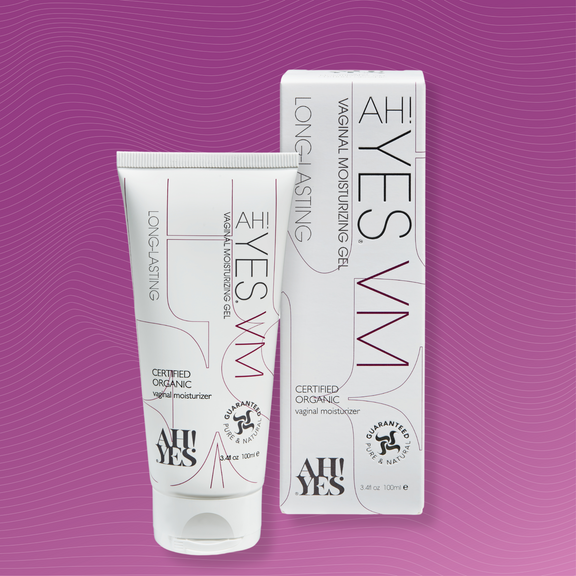Menopause After Hysterectomy: What You Need to Know
Menopause is a natural part of life that usually happens when women are in their 40s or 50s. But if you've had a hysterectomy, menopause might come sooner and hit harder with more intense symptoms. Sadly, topics like menopause and hysterectomies don’t always get the attention they deserve, leaving many women feeling unsure or even anxious about what to expect.
Whether you're prepping for a hysterectomy, supporting someone who is, or just curious to learn more, we're here to answer some of the most common questions about menopause after hysterectomy. We hope this info helps you feel more confident and prepared!
So, What is a Hysterectomy?
A hysterectomy is surgery to remove your uterus (aka your womb). It’s a pretty big procedure, so doctors usually only recommend it after other treatments haven’t worked. You might need one if you’re dealing with:
- Heavy periods
- Chronic pelvic pain
- Fibroids
- Cancer
Sometimes, other parts like your cervix and ovaries might also be removed, depending on your health situation. Here's a quick breakdown of the types of hysterectomies:
- Total hysterectomy: Removes the uterus and cervix.
- Subtotal hysterectomy: Removes just the uterus but leaves the cervix.
- Total hysterectomy with bilateral salpingo-oophorectomy: Removes the uterus, cervix, fallopian tubes, and ovaries.
- Radical hysterectomy: Removes the uterus, cervix, fallopian tubes, ovaries, and some surrounding tissues as well as part of the vagina, lymph glands, and fatty tissue.
Will I Still Have Periods After a Hysterectomy?
Nope! Once your uterus is removed, you won’t have periods anymore, no matter how old you are. If your ovaries are still around, you'll continue having hormonal cycles, but without the bleeding.
When Will Menopause Start After a Hysterectomy?
If your ovaries are removed during surgery, you’ll go through what’s called surgical menopause right away, meaning your menopause will start immediately after the operation. That’s because your body is no longer making the hormones it used to. Menopause symptoms like hot flashes and night sweats can be more intense, but the good news is that they might not last as long as if you were to go through perimenopause as well.
Do They Always Remove Ovaries During a Hysterectomy?
Not always! Removing your ovaries (called an oophorectomy) depends on the reason for your hysterectomy. If you’re close to menopause or at risk for ovarian cancer, your doctor might suggest removing them to prevent future problems.
What Happens to My Ovaries if They’re Left In?
If your ovaries stay, they’ll keep making hormones like testosterone. But heads up, they might stop working within five years after surgery, which could kick-start menopause earlier than you’d expect.
Will I Need Hormones After My Hysterectomy?
You might! Many women opt for hormone replacement therapy (HRT) after a hysterectomy, especially if their ovaries are removed. HRT can help ease symptoms like hot flashes, mood swings, and night sweats by replacing the hormones your body no longer makes. Deciding whether or not to take HRT is personal, so it’s a good idea to talk with your doctor to see what’s best for you.
Will I Still Go Through Menopause After a Hysterectomy?
That depends. If your ovaries are removed, you’ll go straight into menopause (surgical menopause) right after the surgery. If your ovaries stay, there’s a chance you’ll go through menopause naturally—usually within five years of the surgery. Some women might notice menopause symptoms (like hot flashes) immediately after surgery, but they typically fade as your body heals.
What Happens to My Estrogen Levels After a Hysterectomy?
If your ovaries are taken out, your estrogen levels will drop pretty fast, causing those classic menopause symptoms like hot flashes, night sweats, mood changes, and vaginal dryness. If your ovaries stay, they might stop working over time, leading to a gradual decrease in estrogen.
Can I Still Get Hot Flashes After a Hysterectomy?
Yes, you can. Hot flashes are pretty common after a hysterectomy, especially if your ovaries were removed. They might be more frequent and intense, but don’t worry—there are ways to manage them, like hormone therapy and lifestyle changes.
What Are the Stages of Menopause After a Hysterectomy?
Natural menopause happens in three stages:
- Perimenopause – The lead-up to menopause.
- Menopause – When you haven’t had a period for 12 months.
- Postmenopause – The years after menopause.
If your ovaries are removed during your hysterectomy, you’ll skip the perimenopause stage and go straight into menopause.
Are There Natural Remedies for Menopause Symptoms After a Hysterectomy?
Absolutely! Here are a few natural ways to help with menopause symptoms:
- Flaxseed – Can help balance hormones.
- Vitamins E & D – These can support overall health and ease symptoms.
- Probiotics – Great for gut health and may help with hormone balance.
- Yoga and breathing exercises – These can reduce stress and manage hot flashes.
If you’re dealing with vaginal dryness associated with menopause after hysterectomy, natural lubricants can make things a lot more comfortable during intimacy. We’ve got a range of all-natural lubricants you can check out to find one that works best for you.
Menopause after a hysterectomy can feel like uncharted territory, but knowing what to expect makes all the difference. Hopefully, these FAQs helped clear up some of the big questions and left you feeling ready for whatever comes next. You've got this!





